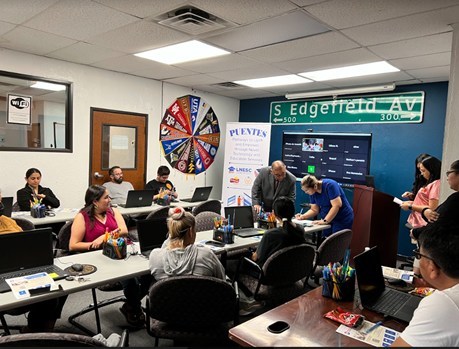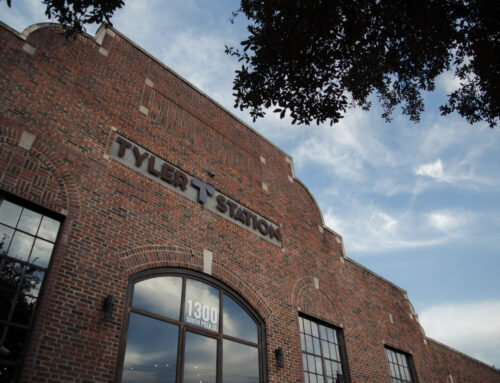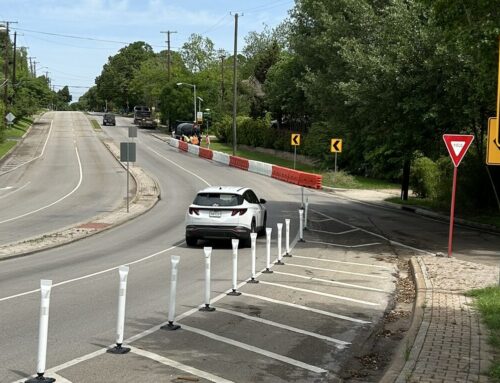
LNESC students start Frito-Lay’s digital literacy program in Oak Cliff. Photo courtesy Frito Lay and LULAC
Nearly half of Hispanic households include at least one member who is not digitally literate, defined as the ability to find, evaluate and communicate information digitally/online, according to a national survey conducted by Morning Consult and Frito-Lay.
Co-authors of the study, Frito Lay, just announced a partnership with LULAC National Educational Service Centers to support a digital literacy program to “improve the technological abilities of Latino families” in Dallas and seven other markets in 2022.
The program will create learning environments for parents and children of disadvantaged households through skills, resources, and tools needed for digital literacy, according to a press release.
About half of Hispanics nationally say increased digital literacy and technology access would make life easier, and first-generation Hispanics in particular believe it would lead to better job opportunities, the study showed.
More than 70% of those surveyed reported that the need for online technology has increased in the past two years and even more for first-generation Hispanics (89%).
“This underscores the importance of addressing such a critical issue as many Hispanic families have language and cultural barriers that present obstacles to understanding technology and how to use it to their advantage,” the authors note.
According to the survey, three in four first-generation Hispanic adults say they are likely to participate in a free digital literacy education program.
“Frito-Lay is committed to supporting our Hispanic communities to lead better lives, and part of that is showing up where our communities need us most,” says Aminta Price, regional vice president sales, Frito-Lay West Division, and Hispanic employee resource group national chair. “Every family should have the resources and opportunity to not only complete basic tasks in today’s digital world, but to use technology to help achieve success.”
The program represents a nearly $250,000 investment from Frito Lay, a Pepsico company, and will benefit 240 families wanting to learn how to use laptops, video conferencing and online tools, according to the company.
It will also offer at-risk students from Dallas an opportunity to participate in a 12-hour program. Beneficiaries will gain further experience using technology and learn how to leverage new skills and resources in the classroom.
The long-term impact of bilingual digital education will enable participants to access a more information and resources necessary to schoolwork, financial aid searches, job training, job searches, ESL courses, online citizenship, résumé, college application and GED preparation as well as other on-line tools to improve their employment status and future opportunities, proponents say.
“As the coordinator for the P.U.E.N.T.E.S. program, I am excited to bring this much needed service to support families. It is vital to provide workshops on digital literacy to low-income, immigrant, Spanish-speaking communities because they are often left behind to learn skills that are essential to thrive in today’s society,” says Andrea Zamora, an interim director at LNESC. “We work to bridge the gap on this divide and uplift families to incorporate online resources to not only support themselves but also their student’s educational journey. We are extremely grateful to partner with Frito-Lay whose values of helping the communities they call home align so strongly with our own.”
A grandfather in Topeka, Kansas, where the program is already underway, says it’s working for him and, he hopes, the rest of his family.
“The teachers were very patient with me, as I am a slow learner, and I learned a lot,” beneficiary Cecil Dozier says. “I am trying to get my daughter to come and bring her children to learn more of this, as this is what we need to function in this world today.”
See the press release on the PR Newswire for study methodology and details.
Featured photo credit: Tim Gouw for Unsplash.





